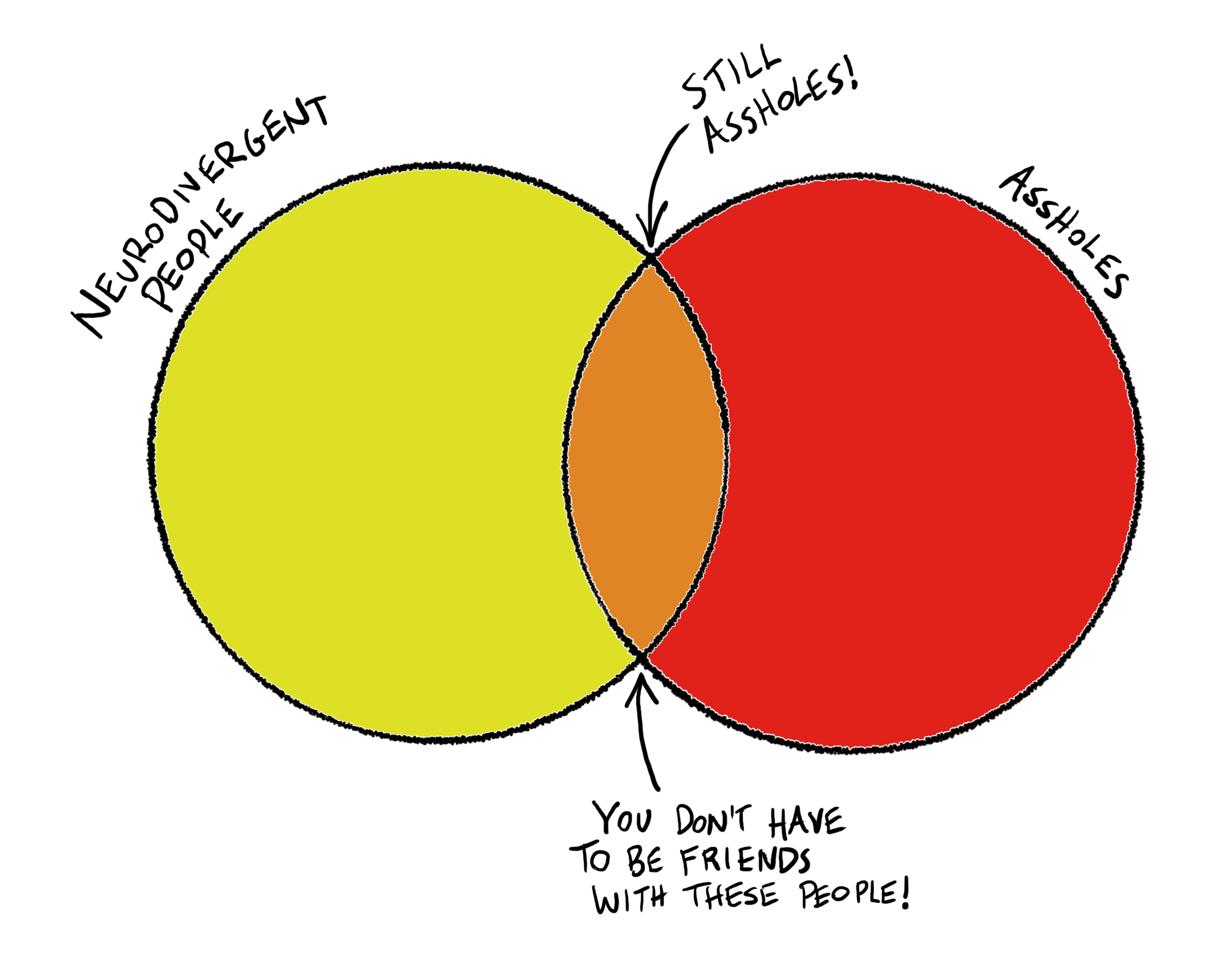this post was submitted on 05 Jan 2025
683 points (96.2% liked)
ADHD
9818 readers
76 users here now
A casual community for people with ADHD
Values:
Acceptance, Openness, Understanding, Equality, Reciprocity.
Rules:
- No abusive, derogatory, or offensive post/comments.
- No porn, gore, spam, or advertisements allowed.
- Do not request for donations.
- Do not link to other social media or paywalled content.
- Do not gatekeep or diagnose.
- Mark NSFW content accordingly.
- No racism, homophobia, sexism, ableism, or ageism.
- Respectful venting, including dealing with oppressive neurotypical culture, is okay.
- Discussing other neurological problems like autism, anxiety, ptsd, and brain injury are allowed.
- Discussions regarding medication are allowed as long as you are describing your own situation and not telling others what to do (only qualified medical practitioners can prescribe medication).
Encouraged:
- Funny memes.
- Welcoming and accepting attitudes.
- Questions on confusing situations.
- Seeking and sharing support.
- Engagement in our values.
Relevant Lemmy communities:
lemmy.world/c/adhd will happily promote other ND communities as long as said communities demonstrate that they share our values.
founded 2 years ago
MODERATORS
you are viewing a single comment's thread
view the rest of the comments
view the rest of the comments

A business is not obligated to tear out every stairway to make a ramp because some of its users require a wheel chair. In the same vein, not every social interaction where a person who is neurodivergent (diagnosed or not) hurts the feelings of another person is necessarily them being an asshole. Another commenter said something about how intent matters. They're right. It does.
However it matters for both parties. It's situational and it's important to remember that a lot of social interactions involve misunderstandings because there is a lack of communication from both sides and a set of different expectations on both sides.
I don't necessarily think it's fair to view every social interaction through the light of who is the injured party. We don't do that to people with physical conditions. You wouldn't accuse a person in a wheel chair of being an asshole for having an expectation of accessibility. But that's because society as a whole has come to an understanding (by force) that accessibility for these physical conditions is important.
I don't think society has come to that realization about ND people, nor do I think that the average person looks at ND behaviors and adapts to them in a meaningful way.
So when people have an expectation based on Neurotypical behavior and a ND person doesn't meet that expectation, do they recalibrate at all to temper the expectations?
One of the commenters here gave an example about working with a ND person and the response the rest of their co-workers had to another person calling them out for it in a fit of anger. The thing is, it should not have gotten to that point. And it's not just because others should have been setting good boundaries in a healthy way about that behavior. It's also because they should have been tempering their expectations and not overcompensating for that ND person in an unhealthy way.
Part of the problems we're seeing between NT's and ND's have a lot to do with communication and an inability to compromise or at the very least try to find resolution in healthy ways.